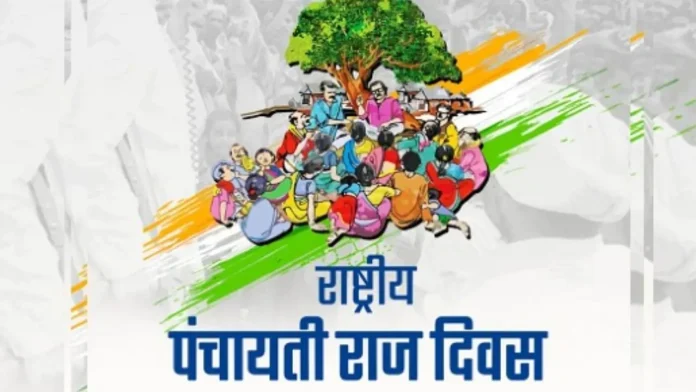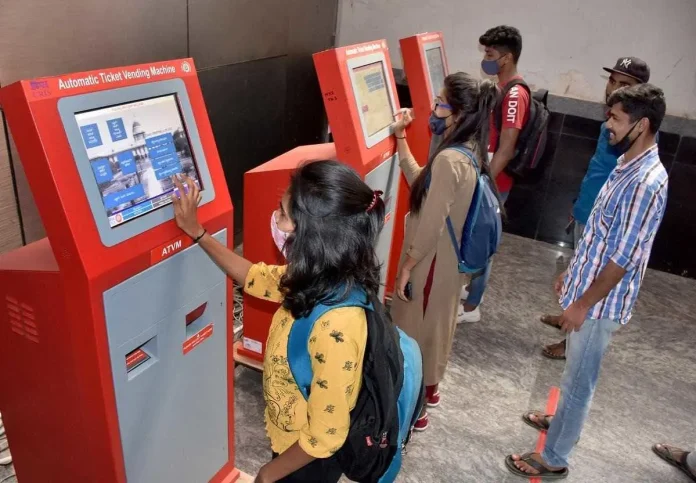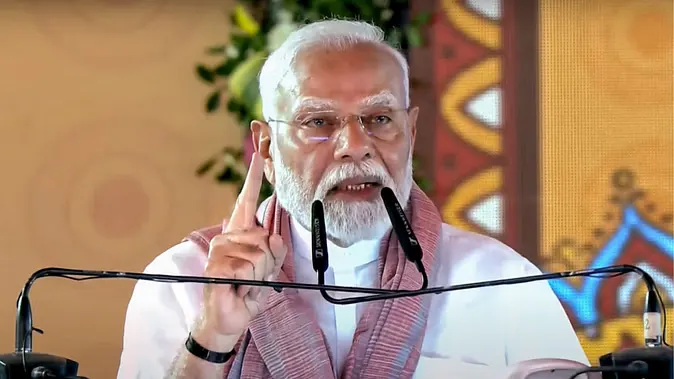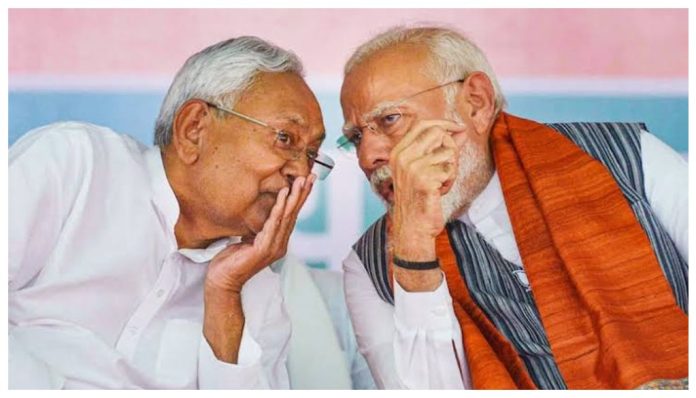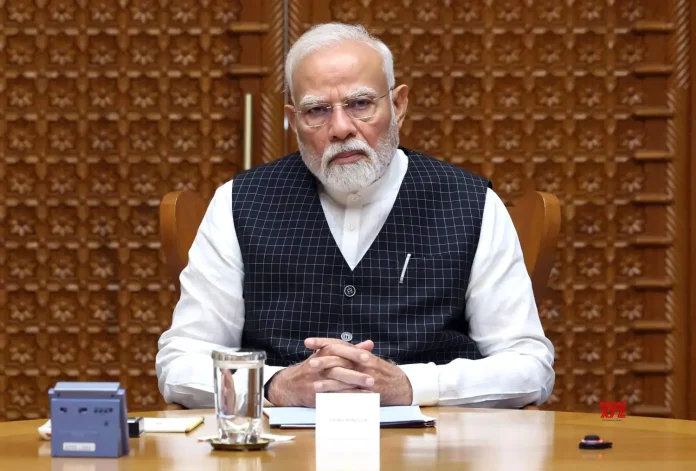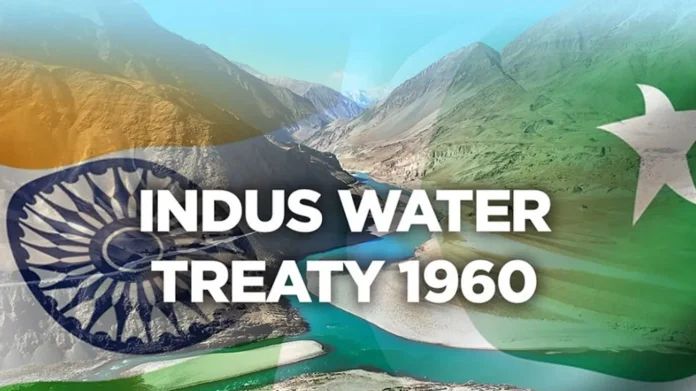Dombivli Bandh to Mourn Death of Three Residents in Pahalgam Terror Attack
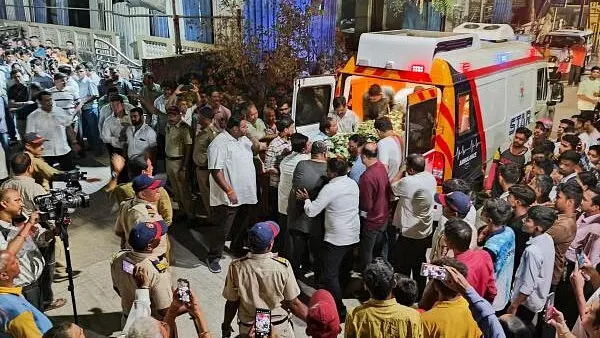
BMC Sanitary Waste Collection: सैनिटरी कचरे का भी होगा अब ‘स्पेशल ट्रीटमेंट’, BMC की नई पहल!
BMC Sanitary Waste Collection: मुंबई महानगरपालिका (BMC) ने नागरिकों के व्यक्तिगत उपयोग से उत्पन्न होने वाले सैनिटरी पैड, डायपर, एक्सपायरी दवाइयों जैसे संवेदनशील कचरे के सुरक्षित निपटारे के लिए एक विशेष अभियान की शुरुआत करने जा रही है। ‘डोमेस्टिक सैनिटरी एंड स्पेशल केयर वेस्ट कलेक्शन सर्विस’ नामक यह सेवा आगामी 1 मई 2025 से मुंबई में शुरू की जा रही है। इस सेवा का लाभ उठाने के लिए गृहनिर्माण सोसायटी, ब्यूटी पार्लर, महिला छात्रावास और शैक्षणिक संस्थानों को 22 अप्रैल 2025 से पंजीकरण करना अनिवार्य होगा।
BMC Sanitary Waste Collection: क्यों जरूरी है यह सेवा?
BMC कमिश्नर भूषण गगराणी के निर्देश और अतिरिक्त आयुक्त (शहर) डॉ. अश्विनी जोशी के मार्गदर्शन में उपआयुक्त (घनकचरा प्रबंधन) किरण दिघावकर की देखरेख में यह विशेष योजना कार्यान्वित की जा रही है। मुंबई में हर दिन 7000 से 8000 टन कचरा उत्पन्न होता है, जिसमें से करीब 70 से 80 टन कचरा सैनिटरी वेस्ट (Sanitary Waste) होता है। इसमें मुख्य रूप से उपयोग किए गए सैनिटरी पैड, डायपर, टैंपॉन्स, कंडोम, एक्सपायरी दवाइयां (जैसे इंजेक्शन, सुई, ब्लेड), गंदे कॉटन, बैंडेज, और ब्यूटी पार्लर से निकलने वाला कचरा जैसे वैक्सिंग स्ट्रिप्स और PPE शामिल हैं।
BMC के अनुसार, इस तरह का कचरा यदि सामान्य घरेलू कचरे के साथ फेंका जाए, तो सफाई कर्मचारियों के स्वास्थ्य के लिए बड़ा खतरा बनता है और इसके निपटारे में भी दिक्कत आती है। इसी को ध्यान में रखते हुए इस कचरे को अलग से संग्रहित और निपटाने की योजना शुरू की गई है।
BMC Sanitary Waste Collection का कैसे करें रजिस्ट्रेशन?
इस योजना का लाभ उठाने के लिए इच्छुक संस्थानों को नीचे दी गई लिंक पर जाकर ऑनलाइन रजिस्ट्रेशन करना होगा:
🔗 रजिस्ट्रेशन फॉर्म लिंक
इसके अलावा, पहले से रजिस्टर्ड संस्थानों को व्हाट्सएप और अन्य माध्यमों से QR कोड भेजा जाएगा, जिसे स्कैन कर रजिस्ट्रेशन की प्रक्रिया पूरी की जा सकती है।
क्या-क्या इंतजाम किए गए हैं?
कचरे को इकट्ठा करने के लिए पीले रंग की विशेष पॉलिथीन बैग्स उपलब्ध कराई जाएंगी। रजिस्टर्ड संस्थानों में BMC की टीम जाकर वेस्ट सेग्रीगेशन (कचरा अलग करने) की ट्रेनिंग देगी। यह सेवा पहले चरण में संस्थागत स्तर पर शुरू की जाएगी ताकि आगे चलकर इसे और अधिक व्यापक रूप में लागू किया जा सके। BMC का यह कदम न केवल सफाई कर्मचारियों की सुरक्षा को सुनिश्चित करेगा, बल्कि मुंबई शहर को स्वच्छ और स्वास्थ्य के प्रति सजग बनाने की दिशा में भी एक महत्वपूर्ण पहल है। BMC ने नागरिकों और संस्थाओं से अपील की है कि वे इस योजना में आगे आकर रजिस्ट्रेशन करें और मिलकर मुंबई को और बेहतर बनाएं।
Fawad Khan’s ‘Abir Gulaal’ Faces Nationwide Backlash, Ban Likely After Pahalgam Attack
The much-anticipated film Abir Gulaal, featuring Fawad Khan and Vaani Kapoor, has come under intense scrutiny and won’t be allowed to get released in India as per a report from IndiaToday following the recent terror attack in Pahalgam, Jammu and Kashmir. The film, which was expected to mark Fawad’s Bollywood comeback, was set for a theatrical release on May 9.
The tragic Pahalgam incident, where 26 tourists were gunned down by militants, has stirred national outrage and reignited discussions about cultural collaborations between India and Pakistan. In response, the Federation of Western India Cine Employees (FWICE) issued a strong statement reaffirming a total boycott of Pakistani actors, technicians, and artists.
The organisation specifically cited Abir Gulaal in its announcement, stating that no project involving Pakistani nationals will be allowed to proceed, regardless of its release status. They emphasised that any Indian production house or industry professional who collaborates with Pakistani talent will face strict disciplinary action.
Release of the Movie Received Political Backlash
Political reactions followed swiftly. The Maharashtra Navnirman Sena (MNS), known for its strong nationalist stance, also voiced strong opposition. Ameya Khopkar, president of MNS’s cinema wing, publicly declared that the party would ensure Abir Gulaal is blocked in Maharashtra. “We’ve warned filmmakers multiple times. If they don’t listen, we’ll make sure their films don’t see the light of day,” he stated.
Amid the uproar, director Aarti S Bagdi and production companies Indian Stories, A Richer Lens, and Aarjay Pictures are now under mounting pressure. Though the filmmakers haven’t made an official statement yet, the controversy continues to snowball.
Meanwhile, both lead actors addressed the attack publicly. Fawad Khan took to Instagram to express his condolences, writing, “Heartbroken by the tragedy in Pahalgam. Sending prayers and strength to all the affected families.” Vaani Kapoor echoed her sentiments, calling the attack “shocking and deeply distressing.”
Many Films Faced Backlash in the Past
This is not the first time the Indian film industry has faced such cross-border cultural conflict. The 2016 Uri attack had also triggered similar bans and boycotts of Pakistani talent. The FWICE reminded the public of its 2019 directive following the Pulwama attack, urging complete disengagement with Pakistani collaborators.
Adding to the tension, Indian Film & Television Directors’ Association President Ashoke Pandit made a fiery statement, criticising the decision to cast a Pakistani actor in the current climate. “Enough is enough. These attacks have gone on for decades. Art can wait. The country comes first,” he said.
As the situation evolves, Abir Gulaal finds itself at the center of a growing cultural and political storm, with the film’s future hanging in the balance amid rising public sentiment and industry resistance.
National Panchayati Raj Day 2025: जानते हैं देश की पंचायतों की पंचायत
National Panchayati Raj Day: भारत एक लोकतांत्रिक देश है जहां शासन की जड़ें जन-जन तक पहुंचाने के लिए पंचायती राज व्यवस्था को लागू किया गया है। ग्रामीण क्षेत्रों के विकास और विकास में ग्रामीण जनता की भागीदारी सुनिश्चित करने के लिए पंचायती राज व्यवस्था एक अत्यंत महत्वपूर्ण प्रणाली है। इसी व्यवस्था की महत्ता और इसके योगदान को सम्मान देने के लिए प्रत्येक वर्ष 24 अप्रैल को राष्ट्रीय पंचायती राज दिवस (National Panchayati Raj Day) मनाया जाता है।
भारत में पंचायती राज का इतिहास
National Panchayati Raj Day: वैदिक साहित्य में ग्रामीण स्थानीय स्वशासन संस्थाओं की संगठित प्रणाली के कई संदर्भ मिलते हैं। ग्रामीण स्थानीय निकाय किस प्रकार कार्य करते हैं, इसे सुसंगत रूप से समझाने के लिए विभिन्न संदर्भों को एक साथ बुनना ज़रूरी है।
वैदिक राज्य, जो एक ग्रामीण राज्य था, में गांव प्राथमिक प्रशासनिक इकाई के रूप में कार्य करता था। ग्रामिनी एक प्रमुख ग्राम अधिकारी का नाम था। वह राजा के राज्याभिषेक समारोह में महत्वपूर्ण भूमिका निभाने वाला एक सम्मानित अधिकारी था।रामायण और महाभारत जैसे प्रमुख महाकाव्यों में ग्राम संस्थाओं का प्रत्यक्ष उल्लेख बहुत कम मिलता है। मुस्लिम काल में कुछ नई अवधारणाएं भारतीय समाज में आईं। नए शासकों ने नई प्रथाओं और मान्यताओं को अपनाया, जिनमें मुक्कद्दम गांव का प्रशासन संभालता था, पटवारी राजस्व संग्रह का काम संभालता था, और चौधरी पंच के सहयोग से विवाद समाधान का काम संभालते थे। कराधान और भूमि प्रबंधन के संबंध में काफी आपसी मतभेद थे। जिला स्तर पर प्रशासन का नियंत्रण था। ग्रामीण बस्तियों को अपनी सीमाओं के अंदर पर्याप्त स्वशासन का अधिकार प्राप्त था। ब्रिटिश शासन ने ग्राम समुदायों की दीर्घकालिक आर्थिक आत्मनिर्भरता को कमजोर कर दिया तथा सामुदायिक भावना को गंभीर क्षति पहुंची। गांव में उपभोग के लिए उत्पादन की जगह बाजार के लिए उत्पादन ने ले ली। गांव के कलाकारों और शिल्पकारों की प्रमुखता खत्म हो गई। उन्हें अच्छे वेतन वाली नौकरियों की तलाश में अपने गांव छोड़ने के लिए मजबूर होना पड़ा। परिणामस्वरूप, ग्राम पंचायतों ने अपनी स्वतंत्रता और बस्तियों के बीच परस्पर सम्पर्क खो दिया। अंग्रेजों ने कुछ ऐसी प्रशासनिक पद्धतियां अपनाईं, जिनसे ग्रामीण समुदायों का विनाश और तेज हो गया। वास्तव में, ये सभी उन समुदायों की बातें हैं जो प्रशासनिक ढांचे में ब्रिटिश संशोधनों के परिणामस्वरूप बुरी स्थिति में आ गए। भारतीय गांवों में लंबे समय से प्रचलित पंचायती राज की गिरावट का कारण केन्द्रीकरण को माना जा सकता है। स्वतंत्रता के बाद पंचायती राज व्यवस्था ने अपना वर्तमान स्वरूप पहली बार स्वतंत्रता के बाद 1959 में अपनाया। भारतीय राष्ट्रीय कांग्रेस द्वारा पंचायतों को लोगों के स्वामित्व वाली व्यवस्था माना जाता था। लोकतंत्र की सच्ची आवाज़ होने के कारण स्थानीय स्वशासन को आवश्यक माना जाता था।
राष्ट्रीय पंचायती राज दिवस का उद्भव
National Panchayati Raj Day: राष्ट्रीय पंचायती राज दिवस की शुरुआत 24 अप्रैल 1993 को हुई, जब 73वां संविधान संशोधन अधिनियम लागू हुआ। इस संशोधन के माध्यम से पंचायती राज संस्थाओं को संवैधानिक दर्जा मिला और पूरे देश में त्रिस्तरीय पंचायत प्रणाली को अपनाया गया। भारत के तत्कालीन प्रधान मंत्री मनमोहन सिंह ने 2010 में पहली बार इस दिन को राष्ट्रीय पंचायती राज दिवस के रूप में घोषित किया और तब से हर साल 24 अप्रैल को यह दिवस मनाया जाता है।
यह अधिनियम पंचायती राज संस्थानों (PRI) को संवैधानिक दर्जा प्रदान करता है और उन्हें जमीनी स्तर पर स्वशासन संस्थानों के रूप में कार्य करने का अधिकार देता है। पंचायती राज भारत में स्थानीय शासन की एक त्रि-स्तरीय प्रणाली (Three-Tier System) है जिसमें ग्राम स्तर पर ग्राम पंचायतें, ब्लॉक स्तर पर पंचायत समितियां और जिला स्तर पर जिला परिषदें शामिल हैं। इस प्रणाली का उद्देश्य स्थानीय स्तर पर शक्ति और संसाधनों का विकेंद्रीकरण करना (Decentralize Power and Resources) और सहभागी लोकतंत्र (Participatory Democracy), सामाजिक न्याय और समावेशी विकास (Social Justice and Inclusive Development) को बढ़ावा देना है।
पंचायती राज प्रणाली को एक संवैधानिक इकाई के रूप में स्थापित किया गया। भारत में पंचायती राज व्यवस्था का एक लंबा इतिहास है जो प्राचीन काल से चला आ रहा है, जहां ग्राम सभाओं के माध्यम से ग्राम स्तर पर स्वशासन का अभ्यास किया जाता था। हालांकि, आधुनिक पंचायती राज प्रणाली की उत्पत्ति बलवंत राय मेहता समिति की सिफारिशों से हुई है, जिसे 1957 में भारत में पंचायती राज संस्थानों को शुरू करने की व्यवहार्यता का अध्ययन करने के लिए स्थापित किया गया था। समिति ने पंचायती राज की त्रिस्तरीय प्रणाली की स्थापना की सिफारिश की, जिसमें ग्राम पंचायतें, पंचायत समितियां और जिला परिषदें शामिल होंगी। समिति की सिफ़ारिशों को भारत के कई राज्यों में लागू किया गया, लेकिन संवैधानिक स्थिति और वित्तीय संसाधनों की कमी ने इन संस्थानों की प्रभावशीलता को सीमित कर दिया। 1992 में 73वां संवैधानिक संशोधन अधिनियम पारित होने तक ऐसा नहीं हुआ था कि पंचायती राज प्रणाली को संवैधानिक दर्जा प्राप्त हुआ और यह भारत की लोकतांत्रिक प्रणाली का मौलिक हिस्सा बन गया। अधिनियम में पंचायती राज संस्थाओं में महिलाओं और अनुसूचित जातियों और अनुसूचित जनजातियों के लिए सीटों के आरक्षण का भी प्रावधान किया गया, जिससे स्थानीय शासन में उनकी भागीदारी सुनिश्चित हुई।
पंचायतों में महिलाओं की भागीदारी
National Panchayati Raj Day: पंचायती राज में महिलाओं की भागीदारी भारतीय संविधान के 73वें संशोधन अधिनियम के माध्यम से सुनिश्चित की गई है, जिसके तहत पंचायती राज संस्थानों में महिलाओं के लिए 33प्रतिशत आरक्षण का प्रावधान है। इस आरक्षण के परिणामस्वरूप महिलाओं को स्थानीय स्तर पर निर्णय लेने और विकास कार्यों में सक्रिय रूप से शामिल होने का अवसर मिला है। 1993 में लागू हुआ यह संशोधन पंचायती राज संस्थाओं में महिलाओं के लिए एक तिहाई सीटें आरक्षित करता है, जिसमें पंचायत सदस्य और उनके प्रमुख दोनों शामिल हैं। इस आरक्षण के कारण महिलाओं की भागीदारी बढ़ी है और वे अब स्थानीय स्तर पर विकास योजनाओं में महत्वपूर्ण भूमिका निभा रही हैं। कई राज्य सरकारों ने पंचायती राज में महिलाओं के लिए आरक्षण को बढ़ाकर 50 प्रतिशत कर दिया है, जिससे महिलाओं की भागीदारी और बढ़ गई है। पंचायतों में महिलाओं के नेतृत्व को मजबूत करने के लिए प्रशिक्षण कार्यक्रम और अन्य पहल भी की जा रही हैं। महिलाओं की भागीदारी में अभी भी कुछ चुनौतियां हैं, जैसे कि सामाजिक और सांस्कृतिक रुकावटें, शिक्षा की कमी, और राजनीतिक जागरूकता का अभाव।
महिलाओं की राजनीतिक और सामाजिक भागीदारी को बढ़ावा देने के लिए जागरूकता, क्षमता निर्माण, और संस्थागत सुधारों पर ध्यान देने की आवश्यकता है।
National Panchayati Raj Day पर दिए जाने वाले पुरस्कार
राष्ट्रीय पंचायत पुरस्कार कई श्रेणियों के तहत प्रदान किए जाते हैं, जिनका मुख्य उद्देश्य जमीनी स्तर पर शासन, सामाजिक समावेश और पर्यावरणीय स्थिरता को मान्यता देना है। श्रेणियां इस प्रकार हैं:
दीन दयाल उपाध्याय पंचायत सतत विकास पुरस्कार (DDUPSVP) यह पुरस्कार सतत विकास लक्ष्य के 9 विषयगत क्षेत्रों में से प्रत्येक के अंतर्गत शीर्ष 3 ग्राम पंचायतों को मान्यता देता है।
नानाजी देशमुख सर्वोत्तम पंचायत सतत विकास पुरस्कार: सभी 9 विषयों में उच्चतम औसत स्कोर वाले शीर्ष 3 जीपी, ब्लॉक पंचायत और जिला पंचायत को सम्मानित किया जाता है।
ग्राम ऊर्जा स्वराज विशेष पंचायत पुरस्कार: नवीकरणीय ऊर्जा स्रोतों को अपनाने और उपयोग करने में महत्वपूर्ण योगदान के लिए शीर्ष 3 ग्राम पंचायतों को प्रदान किया जाता है।
कार्बन न्यूट्रल विशेष पंचायत पुरस्कार: शुद्ध-शून्य कार्बन उत्सर्जन प्राप्त करने के प्रयासों के लिए शीर्ष 3 ग्राम पंचायतों को दिया जाता है।
पंचायत क्षमता निर्माण सर्वोत्तम संस्थान पुरस्कार: सतत विकास लक्ष्यों (LSDG) के स्थानीयकरण को प्राप्त करने में पंचायतों को अनुकरणीय संस्थागत सहायता प्रदान करने वाले शीर्ष 3 संस्थानों को प्रदान किया जाता है।
ग्राम पंचायत का स्वरूप
National Panchayati Raj Day: ग्राम पंचायत का क्षेत्र बिहार पंचायत राज अधिनियम, 2006 के प्रावधानानुसार लगभग 7,000 की जनसंख्या पर जिला दंडाधिकारी (DM) द्वारा घोषित किया जाता है। ग्राम पंचायत में एक या एक से अधिक गांव शामिल हो सकते हैं। मुखिया संबंधित ग्राम पंचायत के सभी मतदाताओं द्वारा प्रत्यक्ष रूप से बहुमत के आधार पर निर्वाचित होते हैं। लगभग पांच सौ की आबादी पर एक प्रादेशिक निर्वाचन क्षेत्र Ward का गठन होता है और प्रत्येक वार्ड से एक ग्राम पंचायत सदस्य निर्वाचित होता है। एक ग्राम पंचायत में न्यूनतम 7 और अधिकतम 17 पंच निर्वाचित हो सकते हैं। सभी वार्ड सदस्य अपने बीच से ही एक उप मुखिया का बहुमत से चुनाव करते हैं। इस मतदान में मुखिया भी भाग लेते हैं। मुखिया, उपमुखिया और सभी वार्ड सदस्यों को मिलाकर ग्राम पंचायत का गठन होता है। ग्राम पंचायत का कार्यकाल प्रथम बैठक से पांच वर्ष तक का होता है।
ग्राम पंचायत की संरचना
National Panchayati Raj Day: ग्राम पंचायत की संरचना में निर्वाचित मुखिया, उप मुखिया एवं प्रादेशिक निर्वाचन क्षेत्र के निर्वाचित सदस्य (Ward Member) सम्मिलित होते हैं। निर्वाचन में विजयी होने के उपरांत मुखिया, उप मुखिया एवं प्रादेशिक निर्वाचन क्षेत्र के सदस्य (वार्ड सदस्य) को शपथ ग्रहण या प्रतिज्ञा लेना अनिवार्य है। प्रत्येक ग्राम पंचायत में ग्राम पंचायत के सदस्यों (वार्ड सदस्य) के कुल स्थानों का 50 प्रतिशत स्थान अनुसूचित जाति, अनुसूचित जनजाति एवं पिछड़े वर्ग के लिए आरक्षित किया जाता है। अनुसूचित जातियों एवं अनुसूचित जनजातियों का आरक्षण पंचायत में उनकी जनसंख्या के अनुपात में होता है। पिछड़े वर्ग का आरक्षण अनुसूचित जातियों एवं अनुसूचित जनजातियों के लिए स्थानों के आरक्षण के पश्चात् 20 प्रतिशत तक होता है। आरक्षित एवं अनारक्षित श्रेणी में 50 प्रतिशत स्थान महिलाओं के लिए आरक्षित किया जाता है। आरक्षण का यही नियम मुखिया पद हेतु होनेवाले आरक्षण पर भी लागू है।
ग्राम पंचायत अपनी प्रथम बैठक की तिथि से 5 वर्षों की अवधि तक रहती है, उससे अधिक नहीं। ग्राम पंचायत सदस्य के रूप में शपथ ग्रहण/ प्रतिज्ञा लेने की तिथि से यानी पांच वर्ष पूरा होते ही मुखिया और उपमुखिया की पदावधि समाप्त हो जाती है।
मुखिया/ वार्ड सदस्य के मृत्यु, त्याग-पत्र, अयोग्यता, पदच्युति अथवा अन्य कारणों से मुखिया का पद रिक्त हो जाने पर यथाशीघ्र उक्त पद पर राज्य निर्वाचन आयोग द्वारा निर्वाचन कराना आवश्यक है। मुखिया एव उप मुखिया दोनों का स्थान रिक्त हो जाने पर कार्यपालक पदाधिकारी 15 दिनों के अंदर पंचायत सदस्यों की बैठक बुलाकर उप मुखिया का चुनाव कराना होता है, जिसके लिए सदस्यों को कम से कम सात दिन पहले सूचना देनी होती है। ऐसी बैठक की अध्यक्षता कार्यपालक पदाधिकारी द्वारा की जाती है, परन्तु कार्यपालक पदाधिकारी को उस चुनाव में मत देने का अधिकार नहीं है।
ग्राम पंचायत की बैठक
National Panchayati Raj Day: ग्राम पंचायत की बैठक दो माह में कम से कम एक बार ग्राम पंचायत के कार्यालय में आयोजित किया जाना अनिवार्य है। इसके लिए मुखिया जब भी उचित समझे तब सूचना देकर ग्राम पंचायत की बैठक आयोजित कर सकता है। इसके अतिरिक्त ग्राम पंचायत के एक तिहाई सदस्यों के लिखित अनुरोध पर, अनुरोध प्राप्त होने की तिथि से 15 (पन्द्रह) दिनों के अन्दर विशेष बैठक आयोजित किया जाना अनिवार्य है। ग्राम पंचायत की सामान्य और विशेष बैठक आयोजन की नोटिस में बैठक का स्थान, तिथि समय तथा बैठक का एजेण्डा स्पष्ट रूप से लिखा जाना चाहिए। ग्राम पंचायत की बैठक के लिए कार्यावली (ऐजेण्डा) मुखिया/ उप मुखिया की सहमति से पंचायत सचिव के द्वारा बनाई जाती है। हर बैठक की कार्रवाई के विवरण को उसके लिए उपलब्ध रजिस्टर में अंकित किया जाना चाहिए और बैठक में भाग लेने वालों का हस्ताक्षर होना अनिवार्य है। यह आम जनता के निरीक्षण के लिए उपलब्ध रहनी चाहिए। सामान्य बैठक की सूचना बैठक के सात दिन पूर्व तथा विशेष बैठक की सूचना तीन दिन पूर्व देना अनिवार्य है। ग्राम पंचायत की बैठक की अध्यक्षता करने का दायित्व मुखिया का है। मुखिया की अनुपस्थिति में बैठक की अध्यक्षता उपमुखिया द्वारा किया जायेगा।
ग्राम पंचायत की बैठक में कोरम (गणपूर्ति) हेतु कम-से-कम कुल सदस्यों की संख्या के आधे सदस्यों की उपस्थिति अनिर्वाय है। बगैर कोरम के ग्राम पंचायत की बैठक में लिए गए निर्णय मान्य नहीं होते हैं। कोरम की ओर ध्यान दिलाये जाने की स्थिति में एक घंटा तक प्रतीक्षा करने के उपरांत अगर बैठक स्थगित की जाती है, तो अगली बैठक की पुन: लिखित सूचना दी जाएगी। स्थगित बैठक की अगली बैठक में भी कुल सदस्य संख्या की आधी गणपूर्ति आवष्यक होगी। ग्राम पंचायत की बैठक चाहे वह सामान्य हो या विशेष या बजट पास कराना हो या अन्य कोई प्रस्ताव पारित कराना हो तो उक्त सभी बैठक में कोरम कुल सदस्य संख्या का 50 प्रतिशत होना अनिवार्य है।
ग्राम पंचायत के कार्य
National Panchayati Raj Day: ग्राम पंचायतों का मुख्य कार्य ग्रामीण विकास में सहयोग करना तथा ग्राम पंचायत स्तर पर ग्राम सभा में निर्णय की प्रक्रिया में आम आदमी को जोड़ना है। बिहार पंचायत राज अधिनियम, 2006 के अनुसार ग्राम पंचायतों को निम्न कार्य आवंटित किए गए हैं :-
संसाधनों के प्रबंधन व उत्पादन संबंधी कार्य, ग्रामीण व्यवस्था व निर्माण संबंधी कार्य, मानवीय क्षमता वृध्दि संबंधी कार्य
कृषि तथा कृषि विस्तार, सामाजिक और फार्म वनोद्योग,लघु वन उत्पाद, ईंधन और चारा, पशुपालन, दुग्ध उद्योग व मुर्गी पालन, मछली पालन
खादी, ग्राम तथा कुटीर उद्योग, ग्रामीण स्वच्छता एवं पर्यावरण, ग्रामीण गृह निर्माण, पेयजल व्यवस्था
सड़क, भवन, पुल, पुलिया, जलमार्ग, विद्युतीकरण एवं वितरण, गैर परम्परागत ऊर्जा स्रोत, जनवितरण प्रणाली
सार्वजनिक संपत्ति का रख-रखाव, बाजार तथा मेले, ग्रामीण पुस्तकालय तथा वाचनालय, खटालों, कांजी हाऊस तथा ठेला स्टैण्ड का निर्माण एवं रख-रखाव
कसाईखानों का निर्माण एवं रख-रखाव, सार्वजनिक पार्क, खेलकूद का मैदन आदि का रख-रखाव, सार्वजनिक स्थानों पर कूड़ादान की व्यवस्था, झोपड़ियों एवं शेडों का निर्माण तथा नियंत्रण
सामान्य कार्य के अधीन योजना बनाना एवं बजट तैयार करना, अतिक्रमण हटाना तथा बाढ़- सुखाड़ आदि प्राकृतिक आपदाओं के समय आम जन को सहायता प्रदान करना, गांव के अनिवार्य सांख्यिकी आंकड़ों को सुरक्षित रखना
धर्मशालाओं, छात्रावासों एवं अन्य वैसे ही संस्थानों का निर्माण एवं उसका रख-रखाव करना, शिक्षा, प्राथमिक व माधयमिक स्तर तक, वयस्क तथा अनौपचारिक शिक्षा
लोक स्वास्थ्य एवं परिवार कल्याण, महिला व बाल विकास, गरीबी उन्मूलन (गरीबी हटाना), कमजोर वर्गो, विशेष रूप से अनुसूचित जाति तथा जनजाति का कल्याण, सामाजिक, सांस्कृतिक तथा खेलकूद को बढ़ावा देना, शारीरिक एवं मानसिक रूप से नि:शक्त व्यक्तियों के लिए सामाजिक कल्याण
उपरोक्त कार्यों के अतिरिक्त, समय-समय पर सरकार द्वारा जो कार्य पंचायत को सौंपे जाएं, उन्हें कार्यान्वित करना।
ग्राम पंचायत का बजट
एक ग्राम पंचायत में 1 साल में कितना पैसा आता है, यह ग्राम पंचायत की जनसंख्या, आकार, और विकास कार्यों पर निर्भर करता है। लेकिन, आम तौर पर, एक ग्राम पंचायत को हर साल कम से कम 9 लाख रुपये का बजट मिलता है। इसके अतिरिक्त, मनरेगा जैसे केंद्र सरकार के कार्यक्रमों से भी धन मिलता है, जो लगभग 12 करोड़ रुपये प्रति वर्ष हो सकता है। पंचायतें करों के माध्यम से अपने राजस्व का केवल 1 प्रतिशत अर्जित करती हैं। उनका अधिकांश राजस्व केन्द्र और राज्यों द्वारा दिए गए अनुदान से आता है। आंकड़े बताते हैं कि 80 फ़ीसदी राजस्व केन्द्र सरकार के अनुदान से आता है, जबकि 15 फ़ीसदी राज्य सरकार के अनुदान से आता है। राज्य राजस्व हिस्सेदारी और अंतर-राज्य असमानताएं इस प्रकार हैं-
अपने-अपने राज्य के राजस्व में पंचायतों की हिस्सेदारी न्यूनतम बनी हुई है। उदाहरण के लिए, आंध्र प्रदेश में पंचायतों की राजस्व प्राप्तियां राज्य के स्वयं के राजस्व का मात्र 0.1 प्रतिशत है, जबकि उत्तर प्रदेश में यह 2.5 प्रतिशत है, जो सभी राज्यों में सबसे अधिक है। प्रति पंचायत अर्जित औसत राजस्व के संबंध में भी राज्यों में व्यापक भिन्नताएं हैं। केरल और पश्चिम बंगाल क्रमशः 60 लाख रुपये और 57 लाख रुपये प्रति पंचायत के औसत राजस्व के साथ सबसे आगे हैं, जबकि असम, बिहार, कर्नाटक, ओडिशा, सिक्किम और तमिलनाडु में प्रति पंचायत राजस्व 30 लाख रुपये से अधिक था। आंध्र प्रदेश, हरियाणा, मिजोरम, पंजाब और उत्तराखंड जैसे राज्यों में औसत राजस्व काफी कम है, जो प्रति पंचायत 6 लाख रुपये से भी कम है।
विशेष श्रेणी राष्ट्रीय पंचायत पुरस्कार-2025,
24 अप्रैल को राष्ट्रीय पंचायती राज दिवस पर बिहार में विशेष श्रेणी पुरस्कार प्रदान किए जाएंगे। पहली बार, पंचायती राज मंत्रालय ने जलवायु कार्रवाई और आत्मनिर्भरता में पंचायतों के प्रयासों को मान्यता देने के लिए विशेष श्रेणी पुरस्कारों की शुरुआत की है। इस वर्ष का राष्ट्रीय पंचायती राज दिवस (NPRD) एक विशेष क्षण होगा, जब विशेष श्रेणी राष्ट्रीय पंचायत पुरस्कार-2025, 24 अप्रैल, 2025 को बिहार के मधुबनी जिले के लोहना उत्तर ग्राम पंचायत में आयोजित होने वाले NPRD -2025 के राष्ट्रीय समारोह में प्रदान किए जाएंगे। यह पहली बार है कि पंचायती राज मंत्रालय ने स्वयं के स्रोत से राजस्व (OSR) में वृद्धि के जरिये जलवायु कार्रवाई और आत्मनिर्भरता की प्रमुख राष्ट्रीय प्राथमिकताओं में ग्राम पंचायतों के अनुकरणीय प्रयासों को प्रोत्साहित करने और मान्यता देने के लिए समर्पित विशेष श्रेणी पुरस्कारों को संस्थागत रूप दिया है। इसके अलावा, सतत विकास लक्ष्यों (LSDG) के स्थानीयकरण के साथ जुड़े पंचायतों के क्षमता निर्माण के लिए सर्वश्रेष्ठ संस्थानों के लिए पुरस्कार भी इस अवसर पर प्रदान किए जाएंगे। प्रमुख राष्ट्रीय प्राथमिकता वाले क्षेत्रों में पंचायतों/संस्थाओं के उत्कृष्ट योगदान को मान्यता देने के लिए निम्नलिखित विशेष श्रेणी के राष्ट्रीय पंचायत पुरस्कार शुरू किए गए हैं:
जलवायु कार्रवाई विशेष पंचायत पुरस्कार (CASPA)-पंचायतों को जलवायु-उत्तरदायी स्थानीय सरकारों के रूप में कार्य करने के लिए प्रोत्साहित करना।
आत्मनिर्भर पंचायत विशेष पुरस्कार (ANPSA) – पंचायतों द्वारा स्वयं के स्रोत राजस्व में वृद्धि के जरिये आत्मनिर्भरता को बढ़ावा देना।
पंचायत क्षमता निर्माण सर्वोत्तम संस्थान पुरस्कार (PKNSSP)- पंचायती राज प्रतिनिधियों और पदाधिकारियों के क्षमता निर्माण और प्रशिक्षण में उत्कृष्टता को पहचानना। यह पुरस्कार मंत्रालय द्वारा 2023 में स्थापित किया गया था और पहले पुरस्कार 2024 में प्रदान किए गए थे।
राष्ट्रीय पंचायत पुरस्कार-2025 की विशेष श्रेणियों के पुरस्कार विजेता हैं:
जलवायु कार्रवाई विशेष पंचायत पुरस्कार (CASPA)
Rank 1: दव्वा एस ग्राम पंचायत, गोंदिया जिला, महाराष्ट्र
Rank 2: बिरदाहल्ली ग्राम पंचायत, हासन जिला, कर्नाटक
Rank 3: मोतीपुर ग्राम पंचायत, समस्तीपुर जिला, बिहार
आत्मनिर्भर पंचायत विशेष पुरस्कार (ANPSA)
Rank 1: मॉल ग्राम पंचायत, रंगारेड्डी जिला, तेलंगाना
Rank 2: हटबदरा ग्राम पंचायत, मयूरभंज जिला, ओडिशा
Rank 3: गोलापुडी ग्राम पंचायत, कृष्णा जिला, आंध्र प्रदेश
पंचायत क्षमता निर्माण सर्वोत्तम संस्थान पुरस्कार (PKNSSP)
Rank 1: केरल स्थानीय प्रशासन संस्थान (केआईएलए), केरल
Rank 2: राज्य ग्रामीण विकास और पंचायती राज संस्थान, ओडिशा
Rank 3: राज्य पंचायत एवं ग्रामीण विकास संस्थान, असम
प्रत्येक पुरस्कार में क्रमशः 1 करोड़ रुपये (रैंक 1), 75 लाख रुपये (रैंक 2) और 50 लाख रुपये (रैंक 3) की वित्तीय प्रोत्साहन राशि शामिल है। पुरस्कार विजेताओं को विशेष रूप से डिज़ाइन की गई ट्रॉफी और प्रमाण पत्र प्रदान किए जाएंगे। गौरतलब है कि 6 पुरस्कार विजेता ग्राम पंचायतों में से 3 – बिहार (मोतीपुर ग्राम पंचायत), महाराष्ट्र (दव्वा एस ग्राम पंचायत) और ओडिशा (हटबद्रा ग्राम पंचायत) – की मुखिया महिला सरपंच हैं।
Train Ticket: रेलवे में टिकटिंग का डिजिटल सफर, हुई बंपर कमाई
Train Ticket: डिजिटल इंडिया अभियान के तहत भारतीय रेलवे ने टिकटिंग सिस्टम को पूरी तरह हाईटेक बना दिया है। अब यात्री लंबी कतारों में खड़े हुए बिना अपने टिकट खुद खरीद सकते हैं वो भी ATVM मशीन, UTS मोबाइल ऐप और QR कोड के ज़रिए। पश्चिम रेलवे के मुंबई मंडल (MMCT) में यह बदलाव सबसे तेजी से देखने को मिल रहा है। 2014-15 में जहां ATVM (Automated Ticket Vending Machine) से टिकट बिक्री सिर्फ 5% थी, वहीं 2024-25 में यह आंकड़ा 23% तक पहुंच गया है। पहले BCT डिवीजन में 377 ATVM थीं, जो अब बढ़कर 435 हो चुकी हैं। इन मशीनों में अब UPI, Paytm और FreeCharge जैसे QR कोड से पेमेंट का विकल्प भी जोड़ा गया है।
डिजिटल टिकटिंग से बढ़ी Indian Railway की कमाई
रेलवे ने 540 पोस्टर महाराष्ट्र और 20 पोस्टर गुजरात में लगाकर यात्रियों को ATVM और UTS ऐप के बारे में जागरूक किया है। इससे रेलवे को भारी आर्थिक लाभ भी हुआ है। UTS ऐप के प्रचार अभियान से ₹12.46 लाख की कमाई सिर्फ R-wallet और UPI के जरिए हुई। Train Ticket News
Train Ticket: UTS मोबाइल ऐप के जरिए पेपरलेस टिकटिंग
UTS ऐप 9 भाषाओं में उपलब्ध है और अब इसमें कई सुविधाएं जुड़ चुकी हैं, एक टिकट पर 4 यात्री की बुकिंग, OTP आधारित लॉगिन, 3% कैशबैक (R-Wallet से टिकट खरीदने पर), पेपरलेस टिकटिंग की दूरी सीमा अब हटा दी गई है, यानी अब यात्री 50 किमी से भी ज्यादा की दूरी के टिकट बिना स्टेशन पहुंचे खरीद सकते हैं।
QR कोड से टिकटिंग में नया उछाल
रेलवे ने 632 डायनामिक UPI QR कोड डिवाइस लगाए हैं। अब यात्रियों को सिर्फ QR स्कैन करना है और टिकट तुरंत मोबाइल पर मिल जाता है। जनवरी 2025 तक 60 कैशलेस टिकट काउंटर बनाए जा चुके हैं। 10 फरवरी और 17 मार्च 2025 को सबसे ज्यादा टिकट बिक्री दर्ज की गई। Train Ticket
Train Ticket: स्मार्ट टिकटिंग की ओर रेलवे का कदम
बांद्रा और अंधेरी स्टेशनों पर Self-Ticketing Zones शुरू किए गए हैं, जहां यात्री पूरी प्रक्रिया खुद कर सकते हैं। CCG, DDR, BVI और ADH जैसे प्रमुख स्टेशनों पर QR Karo UTS विंडो को हाईलाइट किया गया है ताकि अधिक से अधिक लोग डिजिटल टिकटिंग अपनाएं। भारतीय रेलवे तेजी से ‘डिजिटल रेलवे’ की ओर बढ़ रही है। ATVM, QR कोड और UTS ऐप ने न सिर्फ यात्रियों का समय बचाया है, बल्कि रेलवे की कमाई में भी इजाफा किया है। आने वाले समय में रेलवे की कोशिश है कि अधिकतम टिकटें डिजिटल मोड से ही बिकें ताकि काउंटर पर भीड़ कम हो और यात्रियों को सुविधा मिले।
PM Modi on Pahalgam Terror Attack: Will Trace and Punish Every Terrorist beyond Their Imagination
Prime Minister Narendra Modi stated on Thursday that India will “trace and punish every terrorist and their backers” of the Pahalgam terror attack. The prime minister who arrived in Bihar on the occasion of National Panchayati Raj Day vowed that “terrorism will not go unpunished” and justice will be served.
“Today, on the soil of Bihar, I say to the whole world, India will identify, trace and punish every terrorist and their backers. We will pursue them to the ends of the Earth. India’s spirit will never be broken by terrorism. Terrorism will not go unpunished. Every effort will be made to make sure that justice is done. The entire nation is one in this resolve. Everyone who believes in humanity is with us. I thank the people of various countries and their leaders who have stood with us,” PM Modi said while addressing a gathering in Bihar’s Madhubani district.
Conspirators and terrorists will be punished beyond their imagination: PM Modi
The Prime Minister further said the entire country knows how “terrorists brutally killed innocent, and India stands with the family of victims”. Speaking about the Pahalgam incident, he said: “Conspirators and terrorists, who committed this will get punishment beyond their imagination.”
#WATCH | On Pahalgam terror attack, PM Modi says, “Today, on the soil of Bihar, I say to the whole world, India will identify, trace and punish every terrorist and their backers. We will pursue them to the ends of the Earth. India’s spirit will never be broken by terrorism.… pic.twitter.com/8SPHOAJIi2
— ANI (@ANI) April 24, 2025
“The willpower of 140 crore Indians will now break the backbone of the masters of terror. The entire country is in shock over how the terrorists killed innocent civilians in Pahalgam. India is with those who have lost their loved ones in this attack. The government is trying its best to provide treatment to those who are injured,” he stated.
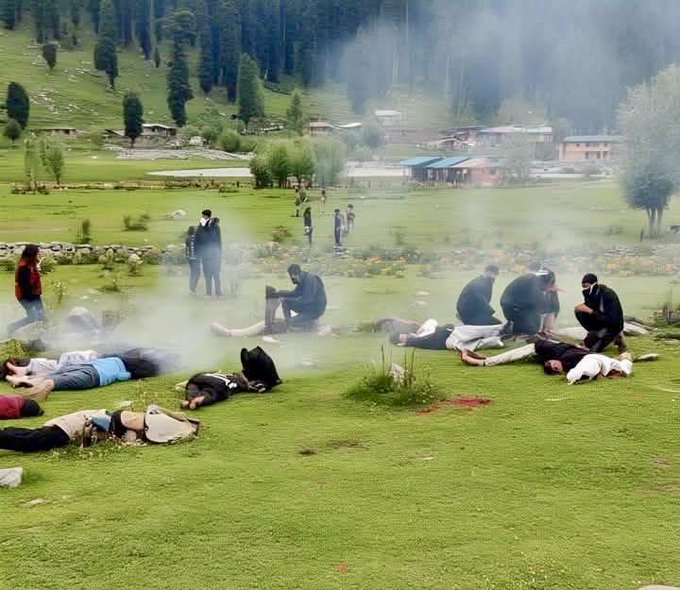
Pahalgam Terror Attack: 26 Indians killed
In a horrifying terror attack that shook Kashmir’s picturesque Baisaran meadow in Pahalgam, Pakistan-based terrorists opened fire on a group of tourists on Tuesday, killing at 26 people and injuring 17 including tourists and security personnel. Two officers from Indian Navy and the Intelligence Bureau were also among the deceased.
In retaliation, two terrorists were killed on Wednesday in a heavy exchange of fire with security forces in Jammu and Kashmir’s Baramulla by the Indian Army. The encounter broke out when around two-three terrorists tried to infiltrate through general area of Sarjeevan at Baramulla’s Uri Nala.
PM Modi cut short Saudi tour, vows justice will be served
In the wake of the Pahalgam terror attack, Prime Minister Narendra Modi cut short his state visit to Saudi Arabia and decided to return to India. The PM departed from Jeddah in the wee hours of Wednesday.
PM Modi skipped the official dinner hosted by Saudi Arabia in view of the terror attack in Kashmir and arrived in India early on Wednesday. He was originally scheduled to return Wednesday night.
“I strongly condemn the terror attack in Pahalgam, Jammu and Kashmir. Condolences to those who have lost their loved ones. I pray that the injured recover at the earliest. All possible assistance is being provided to those affected,” PM Modi stated in an X post on Wednesday condemning the heinous attack.
“Those behind this heinous act will be brought to justice…they will not be spared! Their evil agenda will never succeed. Our resolve to fight terrorism is unshakable and it will get even stronger,” the prime minister further said.
LeT-linked organisation The Resistance Front claimed responsibility
The Resistance Front (TRF), a proxy of the banned Pakistan-based terror group Lashkar-e-Taiba (LeT), claimed responsibility for the attack. The organisation is backed by Pakistan’s intelligence agency ISI. The Resistance Front is allegedly linked to the banned Lashkar-e-Taiba (LeT). The outfit is considered a proxy of LeT founder and 26/11 mastermind Hafiz Saeed.
PM Modi Launches Rs 13,480 Crore Development Drive in Bihar, Focus on Rail, Energy, and Rural Upliftment
During his high-impact visit to the state ahead of the Bihar Assembly elections, Prime Minister Narendra Modi introduced extensive development projects worth more than Rs 13,480 crore today. The visit demonstrated the central government’s main strategic directive for eastern India through core infrastructure development while improving public welfare and modernising connectivity.
Local Bodies Receive National Panchayati Awards
While in Madhubani, Modi directed his attention towards the National Panchayati Raj Day celebration before he honored exceptional local bodies that received National Panchayat Awards. During this event, the government demonstrated its dedication to empowering rural governance through participatory development initiatives.
Among the headline projects was the official launch of the Namo Bharat Rapid Rail service between Jaynagar and Patna. This state-of-the-art, fully air-conditioned train consists of 18 coaches and accommodates over 2,000 passengers, offering a significant leap in regional rail connectivity. This marks the second such train in India, following the initial rollout between Bhuj and Ahmedabad.
To boost housing accessibility, the Prime Minister distributed sanction letters for new homes to 15 lakh beneficiaries under the Pradhan Mantri Awas Yojana–Gramin, while also releasing financial tranches for 10 lakh existing recipients. Additionally, Grih Pravesh (housewarming) ceremonies were symbolically conducted for 1 lakh rural and 54,000 urban families receiving newly built homes.
All You Need to Know About Deendayal Antyodaya Yojana
Under the Deendayal Antyodaya Yojana – National Rural Livelihoods Mission (DAY-NRLM) Prime Minister Modi provided approximately Rs 930 crore in support to more than 2 lakh Self Help Groups (SHGs). The program aims to establish sustainable economic models that empower self-employment programs led by women at the community level.
During this visit to Bihar, PM Modi launched energy sector projects worth Rs 5,030 crore before establishing new infrastructure projects at a cost of Rs 1,170 crore. The Revamped Distribution Sector Scheme includes this initiative to improve distribution quality while expanding rural electrical infrastructure.
In a move to streamline logistics and fuel supply, the Prime Minister laid the foundation stone for a new LPG bottling plant in Hathua (Gopalganj district). The facility, budgeted at Rs 340 crore, will include a dedicated rail unloading system and is expected to significantly improve the LPG supply chain in the region.
New Rail Services Launched
Rail infrastructure upgrades formed a crucial part of today’s announcements. New services were launched on multiple routes including Pipra–Saharsa, Saharsa–Samastipur, and the Amrit Bharat Express between Saharsa and Mumbai. Key inaugurations included the Supaul–Pipra and Hasanpur–Bithan lines, two new overbridges in Chapra and Bagaha, and the newly completed Khagaria–Alauli rail stretch.
During his visit, the Prime Minister received extensive security protection. After a terrorist strike at Pahalgam in Jammu and Kashmir Bihar police started strong security operations within districts bordering to Nepal. The past incidents of terror sleeper cells in Darbhanga and Madhubani pushed officials to maximise security measures through public area monitoring and transport hub checks as well as vehicle inspections.
The numerous announcements on that day reflected the government’s approach toward combining infrastructure development with grassroots empowerment as Bihar maintains its important position in national development.
Kashmir Terror Attack: Mortal Remains of Two Kolkata Tourists Return Home Amid Grief and Outrage
Kolkata, India: The mortal remains of two tourists from Kolkata, who fell victim to a terror attack in Pahalgam, Kashmir, were brought back to the city on Wednesday evening. Amid tearful scenes and seething anger, the families of Sameer Guha of Behala and Bitan Adhikari of Patuli received their loved ones at Netaji Subhas Chandra Bose International Airport around 8 pm.
Political Leaders Unite in Grief
Senior state ministers Aroop Biswas and Firhad Hakim, Leader of the Opposition Suvendu Adhikari, and BJP MP from Tamluk Agnimitra Paul were present at the airport to offer condolences and support to the bereaved families.
“This is unbearable. They killed my husband in front of our child. I’m here only because you all came. I want justice,” said a grief-stricken Sohini Adhikari, widow of Bitan Adhikari. Holding her young son, she added, “He supported you all wholeheartedly.”
Suvendu Adhikari consoled the child and assured Sohini, “This will not be tolerated. Bitan was targeted because he was a Hindu. We will not rest until justice is served.”
Terror Claims 26 Lives, Bengal Mourns
The attack in Pahalgam claimed 26 lives, including Manish Ranjan Mishra from Jhalda in Purulia. The West Bengal government has extended all possible support for the last rites and is coordinating efforts to bring back other stranded tourists.
Chief Minister Mamata Banerjee condemned the attack, calling it a “heinous act of terror” and urged for swift and strong action against the perpetrators. “Terrorism has no religion. We want answers and action,” she said during a cabinet meeting.
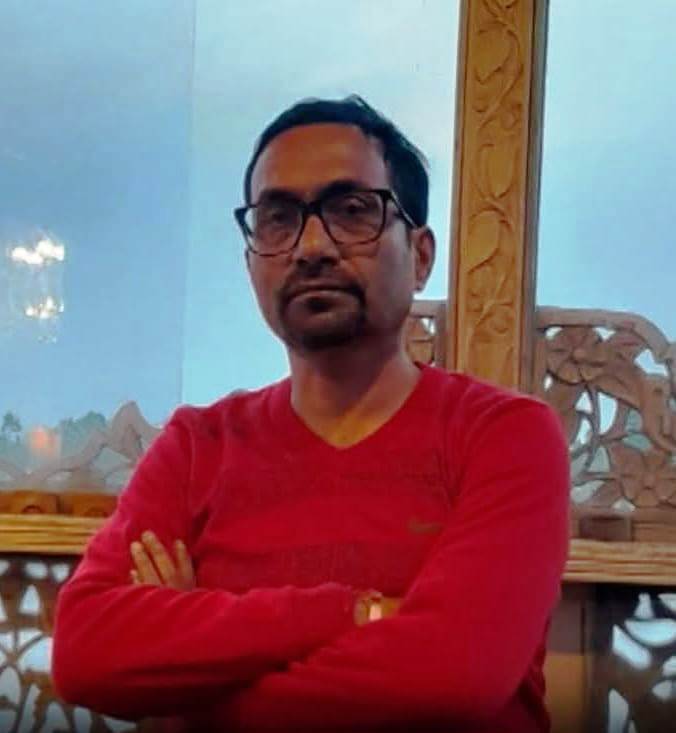
Samir Guha: A Family Man Whose Life Was Cut Short
Samir Guha, a dedicated central government employee, was visiting Kashmir with his wife and daughter for a much-anticipated holiday. A resident of Sakher Bazar in Behala, Guha was known for his kind-hearted nature and love for travel.
His wife recounted the chilling moments of the attack. “They asked for identity first… and then shot him,” she told relatives gathered outside their home. The family had been planning the trip for months. Friends recall Guha as a disciplined man who balanced work and family with grace. A frequent participant in local cultural events, he was also an active volunteer during community drives.
Guha had recently celebrated his daughter’s academic achievements and was planning a surprise for his wife’s birthday next month. The community is now left in shock, struggling to process the senseless killing.

Bitan Adhikari: A Beloved Father and Devoted Husband
Bitan Adhikari, a resident of Vaishnav Ghata in Patuli, was travelling with his wife Sohini and their young son when terrorists opened fire. A soft-spoken man known for his generosity, Bitan worked in a private firm and often spoke of Kashmir as a dream destination.
“He was our strength,” said his elder sister. “He cared for our elderly parents and was planning to build a new house.” Sohini recalled how Bitan was shielding their son when the attack occurred. “He died protecting us,” she said through tears.
Their son, too young to understand the gravity of the tragedy, clung to his mother at the airport while leaders tried to console him. Neighbours remember Bitan as someone who never missed a festival or a community event.

Manish Ranjan Mishra: From Jhalda to the Intelligence Bureau
Manish Ranjan Mishra, 42, had an inspiring journey — from a small town in Purulia to the Intelligence Bureau of India. Known as a brilliant student, cricketer, and quizzer, Manish left stable jobs in banking and Customs to fulfil his dream of serving the nation.
“He believed in purpose over comfort,” said Manoj Rungta, his childhood friend. After stints in Ranchi and Chennai, Manish joined the IB in 2012 through the Staff Selection Commission.
During his service, he was posted in Ranchi, Delhi, and Hyderabad. He loved to travel and had taken leave to holiday in Kashmir with his wife Joya and their two children. Tragically, the trip turned fatal.
His parents received the devastating news while en route to join him in Jammu. “He was a gem,” said Aditya Sharma, a neighbour. “We’ve lost not just a friend but a symbol of pride for Jhalda.”
Chief Minister’s Statement and Ongoing Efforts
Chief Minister Mamata Banerjee announced that the West Bengal government had made all arrangements for the return and funerals of the victims. She added that while 26 people remained stranded due to a landslide, they were safe and being monitored by the administration.
“We are in touch and taking every step to ensure their safe return,” the Chief Minister assured.
India Suspends Indus Treaty, Cuts Diplomatic Ties with Pakistan After Pahalgam Terror Attack
In a decisive response to the deadly terrorist attack in Pahalgam the Cabinet Committee on Security (CCS) conducted a meeting under the Chairmanship of the Prime Minister. The CCS was briefed in detail on the terrorist attack on 22 April 2025 in Pahalgam, in which 25 Indians and one Nepali citizen were killed. A number of others sustained injuries. The CCS condemned the attack in the strongest terms and expressed its deepest condolences to the families of the victims and hoped for the early recovery of the injured.
The Ministry of External Affairs further stated that, strong expressions of support and solidarity have been received from many Governments around the world, which have unequivocally condemned this terror attack.
The CCS recorded its appreciation for such sentiments, which reflect zero tolerance for terrorism.The CCS acknowledged the global solidarity shown towards India in the wake of this tragedy, reinforcing the global consensus against terrorism.
Key measures announced by the CCS
-
Indus Waters Treaty Suspended
-
Attari Border Check Post Shut Down
-
SAARC Visa Exemption for Pakistan Cancelled
-
Military Advisors Expelled, Reciprocal Withdrawal
-
High Commission Staff Reduced
Suspension of the Indus Waters Treaty
India has decided to hold the Indus Waters Treaty of 1960 in abeyance with immediate effect. This crucial agreement governs the sharing of water from the Indus River system between the two nations.
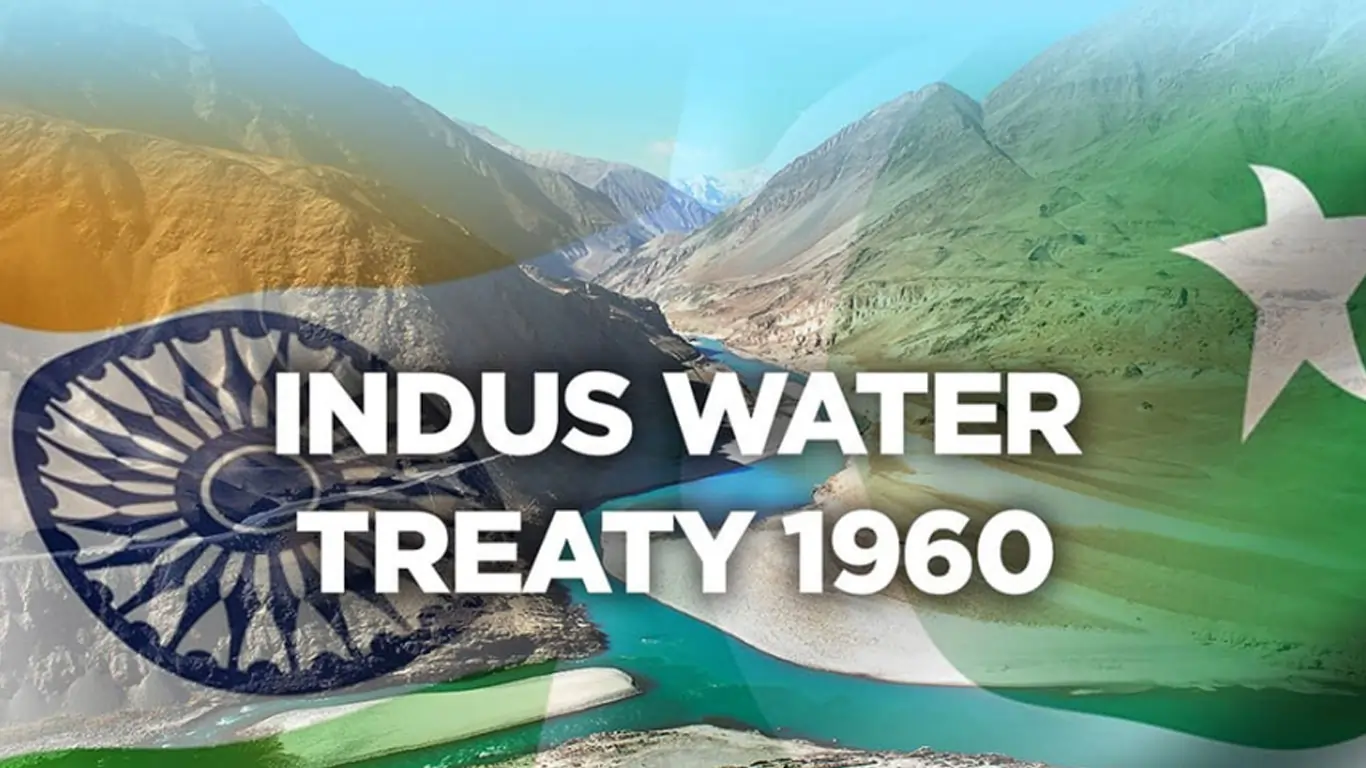
The CCS stated that the treaty will remain suspended until Pakistan credibly and irrevocably ceases its support for cross-border terrorism. This decision marks a major shift in bilateral relations, as the Indus Waters Treaty has been a relatively stable element despite periods of tension between the two nations.
What is The Indus Water Treaty?
The Indus Water Treaty (IWT) is a water-distribution treaty between India and Pakistan, arranged and negotiated by the World Bank. This was to use the water available in the Indus River and its tributaries.
It was signed in Karachi on 19 September 1960 by then Indian Prime Minister Jawaharlal Nehru and then Pakistani President and Field Marshal Ayub Khan. On 23 April 2025, the Foreign Secretary of India announced the suspension of the Indus Waters Treaty with Pakistan following the 2025 Baisaran Valley Terrorist Attack.
Closure of Attari-Wagah Border Check Post
India has further ordered the immediate closure of the Integrated Check Post at Attari, a vital land route for cross-border movement of people and goods between India and Pakistan. Individuals who have already crossed over with valid endorsements will be permitted to return through this route before May 1, 2025. The closure of this key transit point aims to restrict any further cross-border activities and goods exports, sending a strong signal regarding India’s resolve.
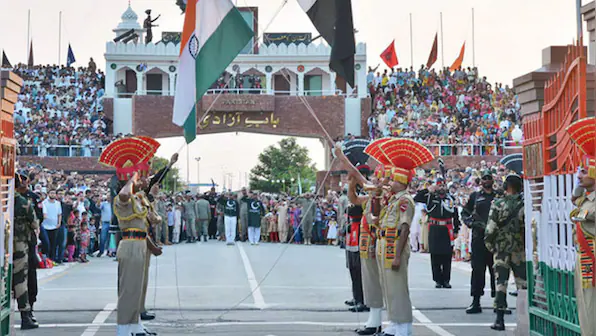
The Attari Check post
Attari, also spelled Atari, is a village of Amritsar district in the Punjab state of India, 3 km from the Indo-Pakistani border at Wagah. It is situated 25 km west of the Sikh holy city of Amritsar, and is the last Indian station on the rail route connecting Lahore, Pakistan with the Indian capital Delhi. Exports to Pakistan, such as soybean, chicken feed, vegetables, red chillies, plastic dana, and plastic yarn, travel through this route.
Cancellation of SAARC Visa Exemption Scheme for Pakistani Nationals
India has suspended the SAARC Visa Exemption Scheme (SVES) for Pakistani nationals. All SVES visas previously issued to Pakistani citizens have been cancelled with immediate effect. Furthermore, any Pakistani national currently in India under the SVES has been given a strict 48-hour ultimatum to leave the country. This measure significantly restricts the movement of Pakistani citizens to India under this previously facilitated scheme.
What is the SAARC Visa Exemption?
The Leaders of South Asia, in the fourth SAARC Summit held on 29-31 December, 1988 at Islamabad recognized the vitality of people to people contact among the peoples of South Asian countries. The leaders in the 4th Summit decided to issue a special travel document to certain categories of dignitaries and exempt them from visas and other travelling documents.
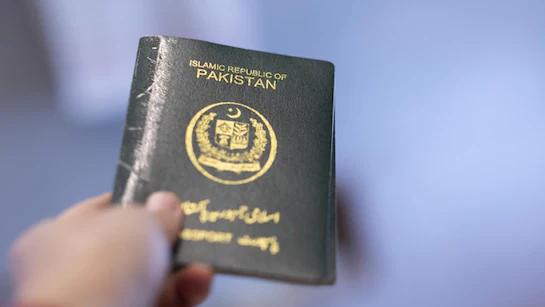
This special travel document is known as SAARC Visa Exemption Sticker and is issued to 24 categories of entitled persons which include Dignitaries, Judges of higher courts, Parliamentarians, Senior Officials, Businessmen, Journalists, Sportsmen etc. The SAARC Visa Exemption Scheme, active since 1992, enables visa-free travel for selected groups.
Expulsion of Pakistani Military Advisors and Reciprocal Withdrawal
Foreign Secretary Vikram Misri said, “The Defence/Military, Naval and Air Advisors in the Pakistan High Commission in New Delhi are declared Persona Non Grata. They have a week to leave India. India will be withdrawing its own Defence/Navy/Air Advisors from the Indian High Commission in Islamabad. These posts in the respective High Commissions are deemed annulled. Five support staff of the Service Advisors will also be withdrawn from both High Commissions.”
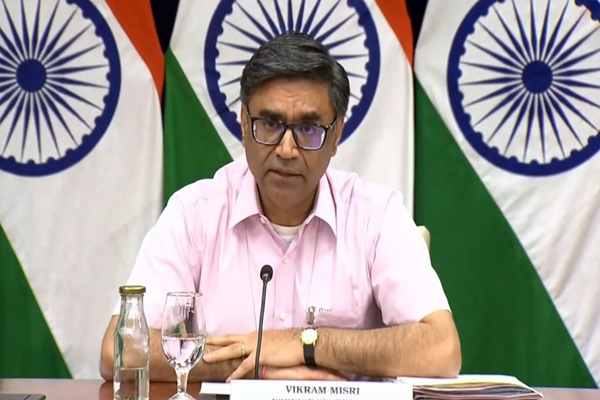
These key liaison posts in both High Commissions are now annulled, and five support staff members from each side associated with these advisors will also be withdrawn. This action severely curtails the military and defense-related diplomatic engagement between the two countries.
What does the term ‘persona non grata’ mean?
In diplomacy, a persona non grata (PNG) (Latin: “person not welcome”) is a foreign diplomat who is asked by the host country to be recalled to their home country. If the person is not recalled as requested, the host state may refuse to recognize the person concerned as a member of the diplomatic mission (including the removal of diplomatic immunity). A host country may declare any member of a diplomatic staff persona non grata at any time without any explanation like India has done.
Reduction of Diplomatic Personnel
India has decided to further reduce the overall strength of its High Commission in Islamabad to 30, down from the current 55. This reduction is to be in effect by May 1, 2025, and signifies a further downgrading of diplomatic ties between the two nations. This measure will limit the scope and scale of bilateral interactions and diplomatic activities.
Extradition of Tahawwur Rana
The CCS reviewed the overall security situation and directed all forces to maintain high vigil. It resolved that the perpetrators of the attack will be brought to justice and their sponsors held to account. As with the recent extradition of Tahawwur Rana, India will be unrelenting in the pursuit of those who have committed acts of terror, or conspired to make them possible.
The CCS, which includes key ministers such as Home Minister Amit Shah, Defence Minister Rajnath Singh, and External Affairs Minister S Jaishankar, along with National Security Advisor Ajit Doval, also reviewed the overall security situation and directed all security forces to maintain high vigilance.
पहलगाम हमले के बाद भारत ने तोड़ी Indus Water Treaty-जानिए क्या है सिंधु जल संधि
Pahalgam Attack: जम्मू-कश्मीर के पहलगाम में हुए चरमपंथी हमले के बाद भारत ने पाकिस्तान के साथ Indus Water Treaty को रोक दिया है, यानी अब इस संधि के मुताबिक भारत पाकिस्तान के साथ कोई जानकारी साझा नहीं करेगा और न ही इससे जुड़ी किसी बैठक में हिस्सा लेगा। नई दिल्ली में प्रधानमंत्री नरेंद्र मोदी की अध्यक्षता में सुरक्षा मामलों की कैबिनेट कमेटी (CCS) की बैठक में ये फैसला लिया गया। जम्मू-कश्मीर के पहलगाम में मंगलवार को चरमपंथी हमला हुआ था। इस हमले में 27 लोगों की मौत हुई है और कई लोग घायल हुए हैं। Pahalgam Attack की इस घटना ने पूरे देश को झकझोर कर रख दिया है।
भारत के पलटवार से घबराया पाकिस्तान
Indus Water Treaty: पाकिस्तान ने भारत सरकार के इस फ़ैसले पर एतराज जताया है। पाकिस्तान तहरीक ए इंसाफ़ (PTI) के नेता और पाकिस्तान के पूर्व सूचना और तकनीकी मंत्री चौधरी फवाद हुसैन ने कहा कि अंतरराष्ट्रीय क़ानून के तहत भारत ऐसा नहीं कर सकता है। उन्होंने सोशल मीडिया प्लेटफॉर्म X पर पोस्ट कर कहा, “अंतरराष्ट्रीय क़ानूनों के तहत भारत इंडियन बेसिन संधि (Indus Water Treaty) पर रोक नहीं लगा सकता। ऐसा करना समझौते से जुड़े क़ानून का घोर उल्लंघन होगा।” पाकिस्तान के उप प्रधानमंत्री और विदेश मंत्री इशाक डार ने X पर पोस्ट किया, “भारत सरकार की ओर से आज शाम जारी किए गए बयान का जवाब देने के लिए गुरुवार सुबह प्रधानमंत्री शहबाज़ शरीफ़ ने नेशनल सिक्योरिटी कमेटी की मीटिंग बुलाई है।”
इस बीच भारत में बुधवार को प्रधानमंत्री आवास पर हुई बैठक में केंद्रीय गृह मंत्री अमित शाह, विदेश मंत्री एस जयशंकर, रक्षा मंत्री राजनाथ सिंह और राष्ट्रीय सुरक्षा सलाहकार अजित डोभाल सहित कई शीर्ष अधिकारी मौजूद थे। कैबिनेट की बैठक के बाद विदेश सचिव विक्रम मिसरी ने बयान जारी किया। इस बयान में उन्होंने कहा कि भारत ने पाकिस्तान के साथ 1960 की सिंधु जल संधि को तुरंत प्रभाव से स्थगित करने का फ़ैसला किया है। उन्होंने कहा कि ये फ़ैसला तब तक लागू रहेगा, जब तक पाकिस्तान विश्वसनीय ढंग से सीमा पार आतंकवाद को समर्थन देना बंद नहीं कर देता।
In a press conference held by Foreign Secretary Vikram Misri, India, in response to the Pahalgam attack, has taken several measures against Pakistan for promoting cross-border terrorism. pic.twitter.com/qYlMzAv7Eh
— ADV Pramod Kumar (@thelawyr) April 24, 2025




